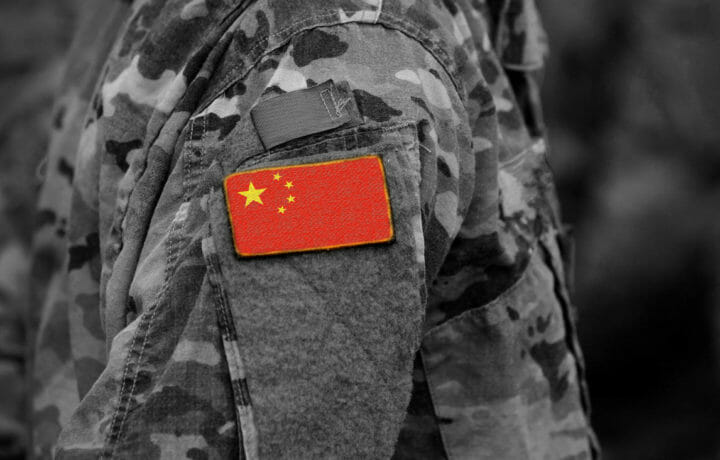Come July 24, China will have one less consulate when their Houston establishment shutters its doors at 1600 hours. The U.S. State Department ordered the consulate closed on Tuesday afternoon, giving the occupants 72 hours to vacate and depart.
This order had the consulate in full burn-out mode just a few hours later. They apparently had a loose burnout protocol in place. The policy required them to purchase burn barrels and ignite them in their courtyard. The fire began the massive destruction of classified and sensitive documents, no doubt accompanied by shredders and disintegrators inside the office complex.
Burning Question: Why Houston?
In addition to the consulate in Houston, China has consulates in San Francisco, Los Angeles, Chicago, and New York. The Houston consulate’s area of operation and responsibility encompassed the states of Alabama, Arkansas, Florida, Georgia, Louisiana, Mississippi, Oklahoma, Texas, and the Commonwealth of Puerto Rico. The State Department claimed that they closed the Houston consulate “in order to protect American intellectual property.”
The consular areas of responsibility for the remaining four consulates and the embassy are chock-a-block full of target rich entities. While pundits speculate political tactics to be at play, they also acknowledge the fact that the level of espionage activities within the same footprint warrants highlighting.
Examples of Houston Consulate Footprint
Some examples of Chinese intelligence activities within the Houston consulate footprint are:
- Alabama – China successfully penetrated Redstone Arsenal contractor QinetQ in 2013 putting the inventory of highly sensitive weapons technologies into the Chinese hands .
- Arkansas – In 2016, China launched their efforts against the United States Department of Agriculture National Rice Research Center in Stuttgart, Arkansas. The U.S. government employee, Wengui Yan, who had emigrated from China some 20-plus years prior, facilitated the visits of Chinese delegations and the purloining of advance research samples to leap frog China ahead of the United States.
- Florida – In 2013, China launched their espionage efforts against the U.S. agricultural center from Florida focused on corn. Their operative, Mo Hailong, was a researcher in Florida and traveled the Midwest. The Chinese operation, netted China the intellectual property from leading U.S. agricultural conglomerates, the acquisition of a sub-rosa Chinese test farm in Illinois, and the introduction of Chinese personnel traveling in official alias in order to tour U.S. facilities in relative anonymity.
- Georgia – China demonstrated their ability to conduct espionage in Georgia and across the United States when they with the purpose of collecting national security information. Peng was arrested for attempting to obtain classified U.S. national security information.
- Louisiana – New Orleans saw two of their residents arrested for attempting to penetrate the U.S.-Taiwan defense pipeline. Two local businessman, Yu Xin Kang and Tai Shen Kuo attempted to purchase U.S. classified information from an insider for the purpose of providing it to China.
- Oklahoma – China’s targeting the energy sector is well established, and in late-2019 we saw the arrest of a Chinese national, Hongjin Tan who purloined $1 billion of trade secrets from his employer, Phillips 66 Research.
- Texas – In 2017, Houston-based Trelleborg found itself in the targeting bullseye of the Chinese intelligence machine. China successfully, through the compromise of insiders, was able to replicate the manufacture of syntactic foam in China. Later, China offered to sell their manufactured product to Trelleborg.
Houston is Just One Arrow Lost in the Quiver
To pinpoint Houston as the epicenter of Chinese espionage activity is to ignore the reality of the day. Borders are not inhibitors. China can engage a target in any U.S. state online or face-to-face with or without official mission presence. However, to say that the area of responsibility was not of interest would be equally naive.
The consulate facilitates the identification of potential targets via their community outreach, visa processing, invitations to China, and face-to-face engagement. In other words, China loses one of its arrows in the quiver with the closing of the consulate in Houston.
China retaliation will lead to a draw down
China will retaliate. It isn’t a question; it is a statement. In their era of nationalist fever, China has been globally engaged in “wolf warrior” diplomacy. To do nothing, will neuter the wolf.
The administration is hoping for a consulate closing in Wuhan; however, they should expect a closure demand for the consulate in Shanghai or Guangzhou. Should this occur, we can expect the Chinese consulate in San Francisco to be next.
Examples of San Francisco Footprint
The Department of Justice has set the San Francisco table with a bevy of cases that have come to light over the past few months:
- Juan Tang – Tang is a researcher at UC-Davis. She omitted from her visa application that she was an active duty officer of the People’s Liberation Army (PLA) and a researcher within the Air Force Military Medical University aka Fourth Military Medical University. Following her interview on June 20, Tang made her way to the Chinese consulate in San Francisco.
- Song Chen – Chen was charged with visa fraud. She omitted her connection to the Chinese military on her visa application, specifically the Xi Diayutai Hospital in Beijing. A hospital believed to be a PLA hospital and that she was a visiting neurological researcher at Stanford Medical School.
- Xin Wang – Wang was charged with lying on his visa application about being an officer of the PLA and tasked by the PLA with obtaining the layout of the lab at the University of California – San Francisco so that the lab could be replicated in China.
China’s play
China’s on the clock, will they retaliate or not. When they do, then the answer to “Why Houston” will be, “Houston was simply round one.”




